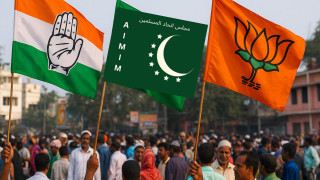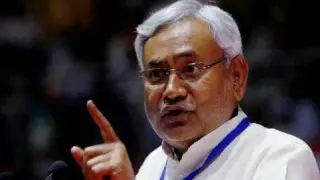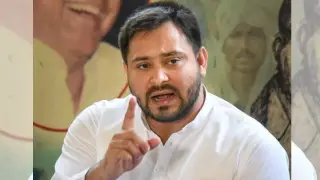
The 2024 Lok Sabha elections brought a surprising turn of events in Maharashtra, where the Bharatiya Janata Party (BJP) and its Shiv Sena allies faced a significant defeat. This unexpected outcome has sparked widespread analysis and debate. What caused this reversal of fortunes for a coalition that had once enjoyed a stronghold in the state? Understanding the reasons behind this shift is crucial to grasping the evolving political landscape in Maharashtra. The INC won the elections, gaining 13 out of the 48 seats and Uddhav's Shiv Sena won 9 in comparison to Shiv Sena, who won 7 seats and BJP, who bagged 9 seats.
The alliance between BJP and Shiv Sena was marred by internal conflicts and factionalism. The infighting within Shiv Sena, especially between the Uddhav Thackeray faction and the Eknath Shinde faction, weakened their united front. Voters perceived this discord as a lack of stability and coherence, leading to diminished support.
After years of BJP-Shiv Sena rule, a strong anti-incumbency sentiment had set in among the electorate. Voters expressed their frustration with unmet promises, economic challenges, and perceived governance failures. This sentiment played a significant role in driving voters towards alternative parties seeking change.
Maharashtra, like many other states, faced significant economic challenges, including unemployment, agrarian distress, and slow industrial growth. The ruling alliance was unable to address these issues effectively, leading to widespread dissatisfaction among the electorate. The opposition capitalized on these economic woes, promising better solutions.
The opposition parties, including the Congress and the Nationalist Congress Party (NCP), ran a strong and strategic campaign. They successfully highlighted the shortcomings of the BJP-Shiv Sena government, offering a contrasting vision for Maharashtra's future. Their unified and well-coordinated efforts resonated with the voters, especially in rural and semi-urban areas.
Over time, the BJP and Shiv Sena were seen as losing touch with grassroots realities. Their policies and initiatives were perceived as top-down, with insufficient engagement and consultation with local communities. This disconnect was particularly evident in rural regions, where local issues were not adequately addressed.
Certain policies and decisions by the BJP-Shiv Sena government sparked controversy and discontent. Issues such as handling of farmer protests, land acquisition policies, and urban development projects faced backlash from affected communities. These controversies eroded trust and support among key voter bases.
The demographics of the voting population in Maharashtra have been shifting, with a growing number of young and first-time voters. These voters are more aspirational and critical of traditional political narratives. The BJP-Shiv Sena alliance struggled to connect with this demographic, which leaned towards parties offering progressive and inclusive agendas.
The defeat of the BJP and Shiv Sena in Maharashtra's 2024 Lok Sabha elections is a multifaceted issue, rooted in internal discord, anti-incumbency sentiment, economic challenges, strong opposition, lack of grassroots connection, controversial policies, and shifting voter demographics. Each of these factors played a crucial role in reshaping the political preferences of the electorate. As Maharashtra moves forward, it is essential for political parties to learn from these insights and address the diverse and evolving needs of the people to regain their trust and support.













Copyright © 2025 Top Indian News
